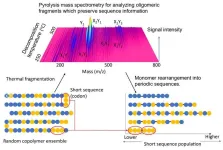(Press-News.org) -With pictures-
In a new study, bioscientists argue that strengthening the protection given to areas already protected under law or by local communities is as critical for safeguarding biodiversity as creating new protected areas.
The research team, which included scientists from Durham University, National University of Singapore (NUS) and Princeton University, found that about 70 per cent of the roughly 5000 species analysed either have no apparent representation in protected areas, occur in protected areas that have been downgraded, downsized or degazetted, or would be especially vulnerable to extinction from future land-use change.
But, by enhancing the protection of existing protected areas, and by expanding the existing park networks across just 1 per cent of the planet’s land area, the essential habitats of 1191 animal species that are especially at risk of extinction can be protected.
Full study has been published in the journal Science Advances.
Protected areas can be vulnerable to harmful human activities if there is insufficient enforcement or a lack of political backing for wildlife conservation.
Parks become less effective at protecting species when they experience such downgrading, downsizing or degazettement (PADDD) events, which occur when a government decides to roll-back the legal protections governing a park, diminishing the degree or extent of protection afforded to it.
These changes could result in forest clearance for infrastructure expansion, mining or other activities, and translate to the loss or degradation of habitats. As of 2021, over 278 million hectares of parks are known to have been cumulatively subject to PADDD events, the researchers found.
For example, Megophrys damrei is a critically endangered frog found only in Cambodia and nowhere else in the world. Even though its habitat is protected, the area continues to experience habitat degradation and loss within national park boundaries and in the adjacent surroundings.
Additionally, expanding the protected area network could benefit species whose habitats currently lack sufficient protection. For instance, the study found that protecting an additional 330 square kilometres of natural landscapes within Indonesia would safeguard the suitable habitats of 53 species that currently lack protected area coverage and have limited area of habitat.
For example, the Sangihe golden bulbul is a critically endangered songbird species found only on Sangihe Island in Indonesia and nowhere else in the world. Estimates put the entire population of the species at between 50 and 230 individuals remaining at one site, which is not protected. This species is absent from plantations, suggesting it is a sensitive species that can only thrive in good forests and would benefit from enhanced conservation.
Reflecting on the research findings, Dr Rebecca Senior of Durham University, said: “There are many wonderful examples in conservation of people fighting to protect species, but there is always a risk that when you take your eye off the ball, pressure builds, and hard-won protection is lost.
“Designating parks on paper is not enough; they need to be in the right places, with the right management, and they need to last.”
Lead author of the study, Dr Zeng Yiwen of NUS, said: “This study establishes a geography of arks: Where new parks can be created, and where to restore and reinforce existing parks, to boost wildlife conservation.
“Many global discussions on conservation rightfully centre around the need to create new protected areas. These include discussions at the COP15 United Nations biodiversity conference in December 2022, where a target to protect 30 percent of the planet’s lands and seas was adopted. But our study also shows the importance of ensuring that protected areas remain effective at keeping out harmful human activity.”
The findings of the new study come amid growing recognition of the need to conserve the planet’s biodiversity by creating new protected areas. At the United Nations biodiversity conference COP15 in December 2022, for example, countries had agreed on a target to set aside 30 per cent of the planet’s lands and seas as protected areas.
The latest research sheds light on another important aspect of wildlife conservation: ensuring that already protected areas, or parks, continue to remain a safe space for biodiversity.
ENDS
Media Information
Dr Rebecca Senior from Durham University is available for interview and can be contacted on rebecca.senior@durham.ac.uk.
Alternatively, please contact Durham University Communications Office for interview requests on communications.team@durham.ac.uk or +44 (0)191 334 8623.
Graphics
Associated images are available via the following link: https://bit.ly/protected-areas-species
Source Information
‘Gaps and weaknesses in the global protected area network for safeguarding at-risk species’, (2023), Z. Yiwen, D. Wilcove and R. Senior, Science Advances.
About Durham University
Durham University is a globally outstanding centre of teaching and research based in historic Durham City in the UK.
We are a collegiate university committed to inspiring our people to do outstanding things at Durham and in the world.
We conduct boundary-breaking research that improves lives globally and we are ranked as a world top 100 university with an international reputation in research and education (QS World University Rankings 2023).
We are a member of the Russell Group of leading research-intensive UK universities and we are consistently ranked as a top 10 university in national league tables (Times and Sunday Times Good University Guide, Guardian University Guide and The Complete University Guide).
For more information about Durham University visit: www.durham.ac.uk/about/
END OF MEDIA RELEASE – issued by Durham University Communications Office.
END
New study finds strengthening protection of existing parks is crucial for biodiversity conservation
Embargoed until 1900 BST on Friday, 2nd June 2023
2023-06-02
ELSE PRESS RELEASES FROM THIS DATE:
Scientists reveal new details of cellular process which prevents spread of cancer
2023-06-02
Researchers have for the first time characterised a unique molecular mechanism of the early stages of programmed cell death or apoptosis, a process which plays a crucial role in prevention of cancer.
The study, which is published today (Friday 2nd June 2023) in Science Advances, was led by Dr Luke Clifton at the STFC ISIS Neutron and Muon Source (ISIS) in Oxfordshire, alongside co-lead Professor Gerhard Gröbner at the University of Umeå and partners at the European Spallation Source in Sweden. It is ...
Development of an AI-based mass spectrometric technique capable of determining the monomeric sequence of a polymer
2023-06-02
1. The National Institute for Materials Science (NIMS) has developed an AI-based mass spectrometric technique capable of determining the monomeric sequence of a polymer. This technique may be useful in gaining a deeper understanding of basic polymeric structures, facilitating the development of new materials and helping solve plastic recycling problems.
2. A polymer is a very large molecule composed of a chain of many (ranging from hundreds to hundreds of thousands) small molecules called monomers that are bonded together. Many common polymers (e.g., plastics and resins) are copolymers, consisting of several different types of monomers. During the copolymerization process, the monomers ...
Non-invasive treatment of uterine fibroids research project secures grant at Baton Rouge Health-Tech Catalyst Pitch Night
2023-06-02
BATON ROUGE – A collaboration among Dr. Frank Greenway of Pennington Biomedical Research Center, Dr. Beverly Ogden of Woman’s Hospital in partnership with LSU, and the University of Louisiana at Lafayette, was named as one of three award recipients at the Baton Rouge Health-Tech Catalyst Pitch Night. The team will investigate non-invasive treatment of uterine fibroids, or benign growths, such as leiomyomas or myomas, that development from the muscle tissue of the uterus.
“Fibroids are non-cancerous tumors in the wall of the uterus that are common, and can cause bleeding, pain, and infertility,” ...
nTIDE May 2023 Jobs Report: Job numbers rebound bringing people with disabilities close to previous high in employment
2023-06-02
East Hanover, NJ – June 2, 2023 – In a sharp reversal, employment indicators rebounded for people with disabilities in May, according to today’s National Trends in Disability Employment – semi-monthly update (nTIDE), issued by Kessler Foundation and the University of New Hampshire’s Institute on Disability (UNH-IOD). Employment appears to be remaining strong despite the threats to the labor market posed by the debt ceiling crisis and ongoing efforts to control inflation.
Month-to-Month nTIDE Numbers (comparing April 2023 to May 2023)
Based ...
American Tinnitus Association elects Wayne State researcher as new chair
2023-06-02
DETROIT – The American Tinnitus Association (ATA) has elected Jinsheng Zhang, Ph.D., professor and chair of the Department of Communication Sciences and Disorders in Wayne State University’s College of Liberal Arts and Sciences, as the new chair of its board of directors. With decades of experience in tinnitus research and work with the ATA, Zhang aims to assist with proactive recruitment of scientists to the field of tinnitus and engage more researchers in ATA grant opportunities that will spur progress toward more effective treatments and cures.
Tinnitus ...
Media Alert: American College of Cardiology to host Sports Cardiology Conference
2023-06-02
The American College of Cardiology will host the annual Care of the Athletic Heart course on June 8-10, 2023, in Washington, including poster abstracts and educational sessions. The course is designed for all clinicians who provide cardiovascular care for the professional, occupational, tactical or recreational athlete. As the athletic population expands to all demographic groups, it is critical that there is a larger contingent of clinicians who understand the latest care and practice management for athletes at every level.
Dermot Phelan, BAO, MBBCh, PhD, FACC, and Megan Wasfy, ...
Immunotherapy for brain cancer metastases shows clinical benefit
2023-06-02
In a phase 2 clinical trial of the immune checkpoint inhibitor pembrolizumab, investigators found that 42 percent of patients with metastatic brain cancer benefited from the therapy, with seven patients in the trial surviving longer than two years. The authors caution that these benefits must be weighed against risk of toxicity, but, overall, the study shows promising results that warrant larger studies and efforts to identify patients most likely to benefit from this treatment. Their findings are published in Nature Medicine and presented simultaneously at the 2023 ASCO Annual Meeting on June 2.
“There ...
Commentary calls for equal access to healthcare for DACA recipients and all immigrants
2023-06-02
The paper, published April 17 in The Lancet Regional Health – Americas, was co-authored by Dr. Gunisha Kaur, an associate professor of anesthesiology at Weill Cornell Medicine and medical director of the Weill Cornell Center for Human Rights; Stephen Yale-Loehr, a professor of immigration law practice at Cornell Law School; and Jin K. Park, a medical student at the Harvard School of Medicine and the first DACA recipient awarded a Rhodes Scholarship.
“The erratic enforcement of the DACA program since its inception has led many immigrants and their families to disengage completely from the healthcare system to avoid risking deportation,” said ...
Taming a frenzied immune system
2023-06-02
Researchers at the University of Louisville have received $5.8 million in two grants from the National Institutes of Health to expand their work to better understand and prevent immune system dysregulation responsible for acute respiratory distress, the condition responsible for serious illness and death in some COVID-19 patients. A separate $306,000 NIH Small Business Innovation Research grant supports early testing of a compound developed at UofL as a potential treatment.
The three grants combined total $6.1 million.
During the pandemic, health care providers worked tirelessly to treat patients ...
Veterans exposed to Agent Orange may be at increased risk of developing progressive blood cancers
2023-06-02
WASHINGTON --- Research conducted at Georgetown University’s Lombardi Comprehensive Cancer Center and the Washington DC VA Medical Center on a database of veterans exposed to Agent Orange found an association for an increased risk of developing myeloproliferative neoplasms (MPNs), which are acquired stem cell disorders that can lead to overproduction of mature blood cells complicated by an increased risk of blood clots in arteries and veins. When MPNs progress, they can become deadly leukemias.
The findings will be presented at the American Society of Clinical Oncology 2023 annual meeting in Chicago in June.
Agent Orange is an herbicide that was utilized by the United States military ...
LAST 30 PRESS RELEASES:
Reconstructing the world’s ant diversity in 3D
UMD entomologist helps bring the world’s ant diversity to life in 3D imagery
ESA’s Mars orbiters watch solar superstorm hit the Red Planet
The secret lives of catalysts: How microscopic networks power reactions
Molecular ‘catapult’ fires electrons at the limits of physics
Researcher finds evidence supporting sucrose can help manage painful procedures in infants
New study identifies key factors supporting indigenous well-being
Bureaucracy Index 2026: Business sector hit hardest
ECMWF’s portable global forecasting model OpenIFS now available for all
Yale study challenges notion that aging means decline, finds many older adults improve over time
Korean researchers enable early detection of brain disorders with a single drop of saliva!
Swipe right, but safer
Duke-NUS scientists identify more effective way to detect poultry viruses in live markets
Low-intensity treadmill exercise preconditioning mitigates post-stroke injury in mouse models
How moss helped solve a grave-robbing mystery
How much sleep do teens get? Six-seven hours.
Patients regain weight rapidly after stopping weight loss drugs – but still keep off a quarter of weight lost
GLP-1 diabetes drugs linked to reduced risk of addiction and substance-related death
Councils face industry legal threats for campaigns warning against wood burning stoves
GLP-1 medications get at the heart of addiction: study
Global trauma study highlights shared learning as interest in whole blood resurges
Almost a third of Gen Z men agree a wife should obey her husband
Trapping light on thermal photodetectors shatters speed records
New review highlights the future of tubular solid oxide fuel cells for clean energy systems
Pig farm ammonia pollution may indirectly accelerate climate warming, new study finds
Modified biochar helps compost retain nitrogen and build richer soil organic matter
First gene regulation clinical trials for epilepsy show promising results
Life-changing drug identified for children with rare epilepsy
Husker researchers collaborate to explore fear of spiders
Mayo Clinic researchers discover hidden brain map that may improve epilepsy care
[Press-News.org] New study finds strengthening protection of existing parks is crucial for biodiversity conservationEmbargoed until 1900 BST on Friday, 2nd June 2023




